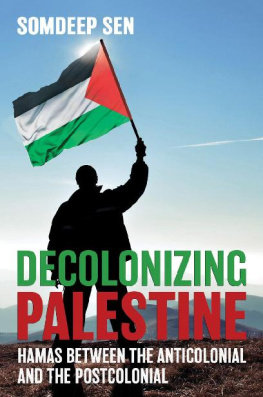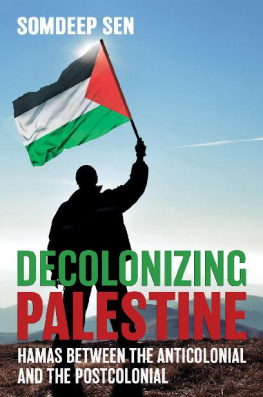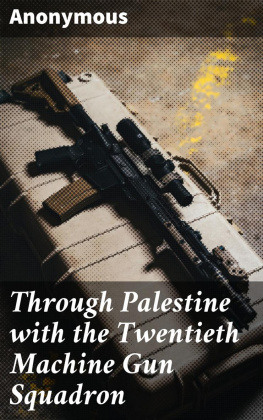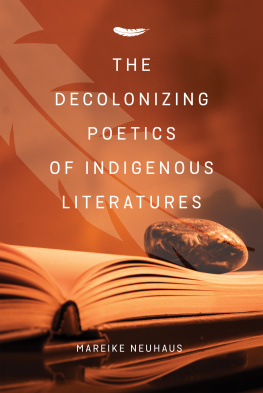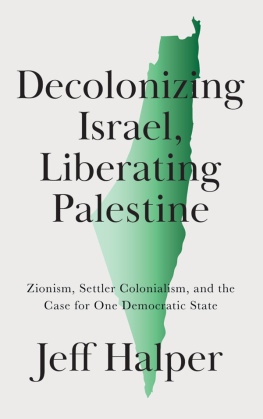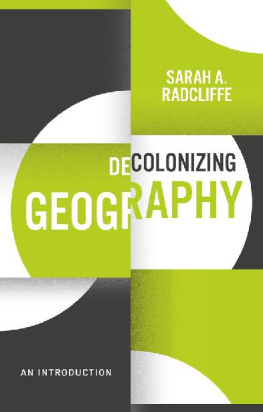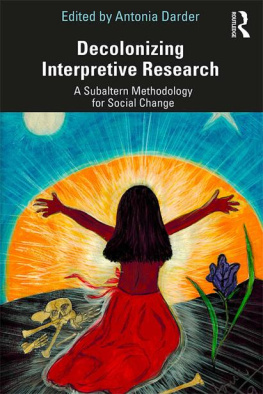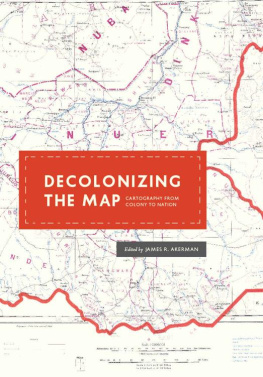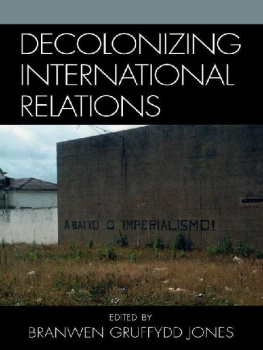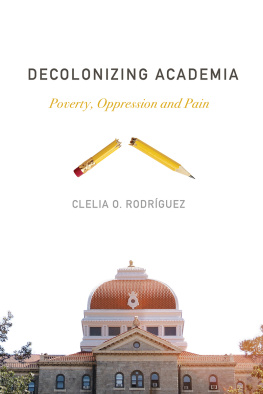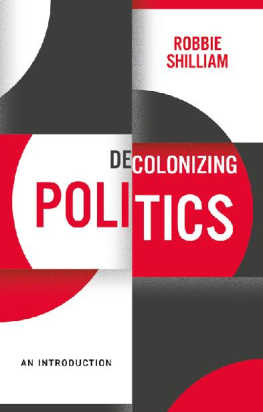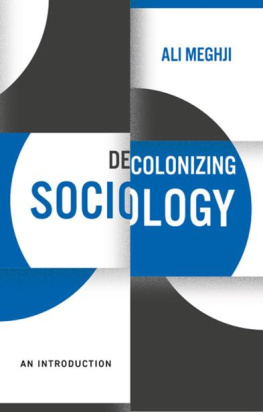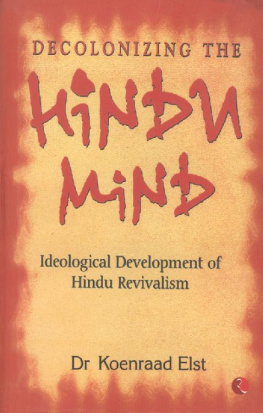Acknowledgments
As with most academic endeavors this book is a collective effort. First of all, this book would not have been possible without the support of my friends and interlocutors in the field. In Cairo I would especially like to thank Bassam and his family for their hospitality and my former Cairo flat mate, Jeffrey Culang, for his support, advice, and willingness to accompany me to the local caf after a long day in the field. I am also grateful to Ben Silsbee, Joel Parker, Yoram Meital, Oren Barak, and Dan Miodownik for their assistance during my fieldwork in Tel Aviv, Beersheba, and Jerusalem. Conducting fieldwork in the Gaza Strip in 2013 was difficult. But it was the friendships I developed in the field that helped me weather through it. I would like to thank Ahmed, Jehad, Bahaa, Hussain, and Sayed for supporting me throughout my stay. I remain humbled by their resilience in the face of adversity, and they will forever be a constant source of inspiration for me. I am also indebted to Omar Shaban and the staff at Pal-Think for Strategic Studies for their support during my stay in Gaza.
I am immensely grateful for the support I received during my studies at the University of Copenhagen from my fellow students Salem Dandan, Lau fjord Blaxekjr, Ayca Uygur, Peter Marcus Kristensen, Rune Bennike, Josefine Khnel Larsen, Kristian Knus Larsen, and Hans Dabelsteen. My supervisor Sune Haugblle was an invaluable pillar of support. He enthusiastically took on the task of supervising a political science doctoral project that challenged some disciplinary norms and skillfully ferried me through the process of writing and defending the dissertation. Thank you also to Ben Rosamund for helpful feedback on various drafts of the manuscript that became this book. Thanks also to John Collins, Jeroen Gunning, and Noel Parker for their critical reading of earlier drafts that laid the foundations of the book in its current form. I would also like to thank the Danish Institute in Damascus and the Danish Council for Independent Research for funding part of my fieldwork in Palestine.
I thank Lene Hansen, Christian Lund and Mikkel Vedby-Rasmussen at the University of Copenhagen, Cynthia Weber at the University of Sussex, Nicola Pratt and Andre Broome at the University of Warwick as well as Carl Death at the University of Manchester, who read several versions of my book proposal and guided me through the intimidating process of steering this book to publishers. I would also like to thank Jonas, Joe, Magnus, Krista and Johan at Roast Coffee in Copenhagen, who kept me hydrated and caffeinated through long periods of intense writing. At Cornell University Press I am grateful to Jim Lance for taking on this book project. His keen interest in this manuscript and his enthusiasm for the final product is the kind of encouragement that fuels young scholars like me.
In the end, an acknowledgement section for this book would be incomplete without a recognition of the contributions of my family. I will remain forever grateful to my in-laws Karen Fog Olwig and Kenneth Robert Olwig for reading and rereading this manuscript. Without their extensive editorial feedback and advice this book would not have been what it is today. My partner Mette Fog Olwig was an invaluable source of support and encouragement as well. A brilliant academic, she read many drafts of this manuscript with a critical eye and her feedback has contributed importantly to the final product, even though I was not always easy to deal with throughout this process. The arrival of our son Shaan Emil and his infectious enthusiasm for life has made me realize that there is more to life than the next book, article, or grant application. Finally, I would like to dedicate this book to my parents Shelley Sen and Pradip Kumar Sen. I am immensely grateful for their enthusiasm for my academic careerthis, despite the fact that I reneged on a promise to become an engineer. I see this project as a culmination of their support and the sacrifices they have made for me over the last thirty-five years.
Note on Interviews
In this book all nonpolitically affiliated interviewees have been assigned pseudonyms in the interest of their security.
DECOLONIZING PALESTINE
An Introduction
We dont know what will happen next. Life is unsure. We are not allowed to have a vision. People here think short-term and are concerned with their immediate needs because we dont know what destiny looms in the future. Maybe the border will be closed, maybe we wont get a visa. Palestinians are not allowed to dream about the future
Ahmed Yousef, Author Interview, Gaza City, May 2013
On May 16, 2013, after a six-hour journey from Cairo, I arrived at the Rafah border crossing between Egypt and the Gaza Strip. I was dropped off approximately a hundred meters from the border and had to walk the rest of the way through a security cordon set up by the Egyptian army. When I reached the gate of the border crossing terminal, I gave my passport and a letter to an Egyptian soldier. This letter, issued by the Egyptian Ministry of Foreign Affairs, allowed me to use the Rafah border crossing to enter Gaza within a designated time period. He examined my documents for a few seconds and then handed them to a superior officer. I waited for the next twenty minutes, still outside under the hot sun, without a passport and surrounded by the vast and desolate landscape of northern Sinai. Looking over my shoulders were Palestinian travelers, nervously waiting to be allowed to enter the border crossing terminal. There was an air of uncertainty. It was possibly a variant of the same sense of uncertainty that a prominent member of Hamas, Ahmed Yousef suggested above to me was synonymous with Palestinian life in Gaza.
Once my documents were returned and I was allowed to enter the premises of the border crossing, Ahmed Yousefs words were further validated by what I saw inside the Egyptian passport control terminal. Without an adequate system of ventilation, the sweltering summer heat inside was unbearable and some of the elderly travelers had been forced to retire to the chairs in the back of the room. Most other travelers remained gathered around the passport department, waiting patiently for the Egyptian passport control officers to bark out their names on a Public Address system with only one operational speaker. The officers would then fling their passports at them. This was the stamp of approval allowing Palestinians to return home to Gaza. Those who were not fortunate enough to receive this stamp of approval were taken to a backroom for extra security checks. Witnessing all this, one anxious Palestinian doctor, desperate to see his family in Gaza City, said to me, You see here. They treat Palestinians like cattle.
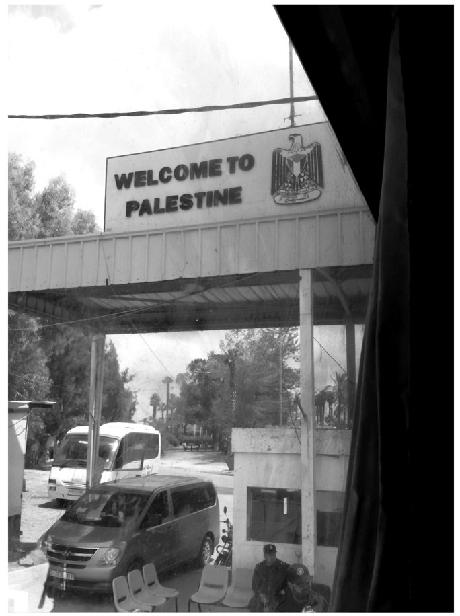
FIGURE 1.1 Entrance to the Palestinian terminal at the Rafah border crossing. Photo by author.
Yet, despite encountering all the familiar features of a place that is besieged and colonized, at Rafah I was also confronted with another, very different image; namely, that of a place that also postures as a postcolonial state that has already risen out of the era of colonization. After spending two hours on the Egyptian side of the border crossing, I entered the Palestinian terminal. Together with a group of Palestinian travelers who had been let in at the same time as me, I was driven through a gate dominated by a sign declaring: Welcome to Palestine ( The passport control officer asked me questions like What are you doing here? Who invited you? and How long do you plan to stay? Having answered them sufficiently, I was then granted a Palestinian entry stamp. Momentarily, it felt as if I had indeed arrived in the State of Palestineone that had been liberated, was now sovereign, and encompassed a distinct territory.


